Kishore BiyaniFounder and CEO of the Future Group Published On: Tuesday, April 28, 2015 Views 30010
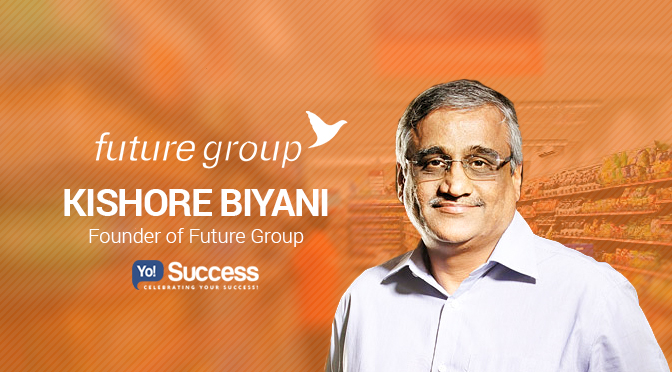
Born on the 9th of August 1961; the Sam Walton of India – Kishore Biyani is the founder and CEO of the Future Group.
Presently valued at more than $1.3 Billion, Kishore is the man who had taken the retail industry by a storm and now has zillions of successes listed under his name and along with that, he has also seen his share of failures too! Today, the Future Group has more than 70 Million sqft of retail space in 90 cities and 60 rural locations, and is also in plans to add in more 9 Million sqft in the years to come.
He has also co-authored his own auto-biography – “It happened in India: the Story of Pantaloons, Big Bazaar, Central and the Great Indian Consumer”, along with Dipayan Baishya. The book so far has sold almost 100,000 copies, which is far more than any other business book published in India.
Personally, Kishore has completed his graduation in the field of Commerce from the H.R. College and simply loves playing Tennis & is often seen placing a bet before the game begins. Based in Mumbai, he is married to Sangita Biyani and together, they have two children. His elder daughter Ashni (textile design graduate from Parsons, New York) is a director of Future Ideas, group’s innovation and incubation cell.
How did he begin?
Kishore Biyani, the current pin-up boy of the Indian retail industry, has played multiple roles including trader, a failed film-maker, a dance festival organiser, in his career but eventually settled to become an innovative retailer. Unlike many others of his league; Kishore wasn’t born with the silver spoon and has single handedly climbed the ladder step-by-step.
Coming from a family of businessmen or should we say that business literally flowing in his blood and bloodline, starting from his grandfather; Kishore was never really keen about studies and merely pushed himself towards graduation. He believed that – “College or Business school might be good for managers, but certainly not for entrepreneurs” and was often seen spending most of his day outside, wandering around new places and understanding and interpreting the real world.
His career in actuality, started just when he neared the end of his graduation!
Kishore had joined his father, brothers and two older cousins in the family business called – “Bansi Silk Mills”, which traded fabrics.
Although Kishore did come to office, but somehow he couldn’t feel the zeal & freedom and was feeling muted by the company’s conservative business culture and used to leave within 2 or 3 hours. He was completely against the way the company functioned and that their attitude & approach towards the business was wrong.
This was the early 1980s! His first entrepreneurial success knocked his door, when he noticed some of his friends wearing “stonewashed” fabric trousers, a popular material at that time. Without any delay, he found a local mill that made that kind of fabric, and sold a few hundred thousand rupees worth of the material to selected garment manufacturers and shops in the city, and earned his first profit.
Kishore had tasted blood and now he craved for more! He desperately started to look around for something new, something different.
He even worked with a few of his elder cousins, who had started their own trades which were mostly around plastic, grooved paperboards and packaging; but it didn’t sustain his interests.
He was looking for a venture or an idea which had the potential to reach out to maximum number of people in the country. That is when he stumbled upon an idea and the unthinkable happened.
He launched his own brand of fabric for men’s trousers called – “WBB – white, brown and blue”.
Rise, Fall & Comeback of Future Group
And from here onwards began the rise of the “Future Group”!
- RISE
In a short span he reached to the peak of demand from the market and sold more than 30,000 to 40,000 metres of the material each month.
And finally in 1987, the unthinkable happened; Kishore started a new garment manufacturing company called “Manz Wear Private Ltd.” and sold his garments under the brand name of “Pantaloon”, a name chosen because it gave the feel of an Italian fashion house and was also closer to patloon (an Urdu word for trousers).
Like it is said: “The first Million is always difficult to earn”, similarly; the initial stages of the company weren’t as smooth as expected!
When Kishore started the business, almost everyone known to him thought that his venture wouldn’t survive, and the worst was that, he had no family corporation to fall back on. They were not allowed in retail functions, brands didn’t want to supply to them, banks were scared to extend a lending hand, the retailers association disconnected them from their group, etc. basically, it was pretty much a rough phase for them – but in Kishore’s words, “It was Fun!”
Anyways, Manz Wear picked up gradually and was now supplying to a few apparel outlets; but then again, Kishore didn’t seem to be satisfied and wanted to expand his scope.
Having said that; he established a chain of franchise stores that sold only Pantaloon trousers and in 1991 Pantaloon Shoppe opened their first store outside the state in Goa, which further went on to expand to men’s apparel line as well.
The year of 92, saw the biggest jump as compared to the chain of events that had taken place so far. Kishore or should we say his company, in this year entered the stock market in a smart attempt to maintain the inflow of fuel which was the primary need for his continued expansion!
Other than going on a spree of opening stores, he also spent a huge chunk on marketing as well, and by 94, word has it that Pantaloon franchise had turned into a 9 million laying hen, annually.
At this point, pantaloons were literally present across every length and breadth of the country, but they seemed to have missed a very important piece while expansion; mobility (in all aspects)! And that turned out to be a logistical nightmare.
Their executive staff found it impossible to visit each of their stores to monitor the quality of service, which weakened some of the older shops and on the other end, the franchisees who worked on a commission basis, focused more on immediate profits rather than customer service.
It was a massacre!
Hence, to fix the mess, Kishore began exploring the idea of transforming Pantaloon into large-format retail stores of his own in 1996 and that is when he stumbled upon a 10,000 sq ft property in Kolkata.
The idea, the place & the timing was just perfect because at that time, the biggest stores in the city were no more than 4,000 sq ft. Hence, in August 1997, the first Pantaloons department store opened for public.
Soon after that; Kishore began working on his next big project – Big Bazaar, a hypermarket with a dose of chaos (stores that were crowded, noisy and a bit messy on purpose).
And just like Kishore had mentioned in his book: “part of his success is attributable to luck – being in the right business, at the right time, in the right country”. Similarly, the timing again was perfect, his target audience a.k.a. the Indian middle-class had now evolved, and they now had the money to spend and were just looking for modern ways to do it!
Having said that; he opened the first Big Bazaar in Kolkata in 2001 and within 22 days, he opened two more. Since then he has gone on to open more than 100 stores country wide and has been catering over 2 Million customers per week.
- FALL
Now as much as things were going great and success seemed to be touching his feet, the company took a bad hit.
It started off with a minor setback which brought the company’s functioning to a short halt; mainly because they had ventured into Bollywood with two of their movies i.e. “Na Tum Jaano Na Hum” (2002) and “Chura Liya Hai Tumne” (2003), which turned out to be huge flops.
But the major fall came when the economic downturn hit the company really bad. The carnage had taken place majorly because huge amounts of debt accumulated as a result of reckless expansion.
It was so drastic that Pantaloon had to postpone the opening of as many as 30 of their stores. They were even forced to reduce the size of some of its other locations.
The debts had become so huge that; they were forced to give up almost 2 Million sq ft of retail space, had to renovate half the Big Bazaar hypermarkets he ran, sell off businesses, and restructure operations. What was even more heart breaking was that, these sell offs included 50.1% stake of their Pantaloons business to Aditya Birla!
Now as much as these deals were painful but at the same time, they were a part of Kishore’s grand strategy which included — increase in productivity and efficiency, not necessarily expansion, and a move away from ‘sasta’ (inexpensive in Hindi) to high-value, high-margin products. To add to that; the ultimate objective of Kishore was to again become “cash-rich and do acquisitions”.
- COMEBACK
And gradually, as planned the company has come out of its low days and Kishore, the Managing Director of India’s largest listed retail company Future Retail Ltd, is finally back & ready to talk growth. Soon everyone started to understand his strategy and noticed the work he was doing and today – you love him or hate him but you cannot ignore him.
Today, the company has grown on to transform into a manifold of empires of its own which eventually fall under one single umbrella – Future Group! The group is now known for having an important standing in the Indian retail and fashion sectors, with their popular supermarket wings.
Pantaloon Retail stores as of date, occupy more than 70 million square feet of retail space all over the country, employ more than 35,000 people, have more than one-fourth of the population i.e. 300 Million people visiting or revisiting the stores every year, makes a net income of more than INR 960.18 crores i.e. $150 Million (2013) annually and have also expanded into other fields as well.

To operate more systematically; after the sale of Pantaloons, the group has been resorted and restructured into: –
- Future Retail Ltd (initially Pantaloons Retail India Ltd) [Big Bazaar, Food Bazaar, FBB, Home Town, E Zone, Foodhall, FutureBazaar.com, etc],
- Future Lifestyle Fashion Ltd [Central, Brand Factory, Planet Sports, etc],
- Future Consumer Enterprise Limited [KB’s FairPrice, Aadhaar, Big Apple, etc],
- Fashion and Lifestyle [Indigo Nation, John Millers, Lombard, Manchester United, UMM Lee Cooper, Celio, Tresmode, etc]
- Integrated Foods and FMCG [Tasty Treat, Fresh & Pure, Ektaa, Premium Harvest, Mera Swad, Pratha, Punya, Sach, etc]
Other than that the company’s Joint Venture Partnerships include: –
- Generali Group – An Italian insurance company which has business in India through a joint venture with Future Group.
- Staples Inc – It is a USA based office supply retailer and has a presence in more than nine cities in India under the joint venture with Future Group. Future Group has a 60% stake.
- Celio – It’s a French fashion brand which has a 65:35 joint venture partnership with Future Group
- Clark – C&J Clark International Ltd is a UK-based footwear and accessories retailer which has a 50:50 JV partnership with the group.
And by 2020, Kishore plans to transform the Future Group into a technology company as well, and by that, it means the company would be more of an analytics company than a retail one.
Achievements
Mr. Kishore Biyani has received several awards some of which include: –
- Received the “CNBC Awaaz Consumer Awards” (2009)
- Pantaloon Retail was awarded as the “International Retailer of the Year” (2007)
- “Entrepreneur of the Year” by Ernst & Young (2006)
- “Retail Face of the Year” Images Retail Awards (2005)
- “Most Admired Retailer of the Year” (2004)
- “CEO of the Year” (2001)
End Note
Kishore is one of the very few men who have managed to build an entire empire, all by himself, and without any godfathers or family backing.
And clearly not that everything that Mr. Kishore Biyani has tried, has worked out in his favour, just like every other human being and a successful businessman.
But that has not stopped him from constantly experimenting or trying out new ideas and that is exactly the key to any success! Keep Trying.




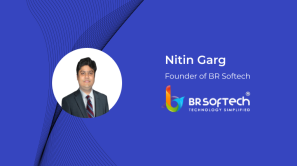

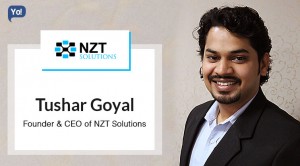
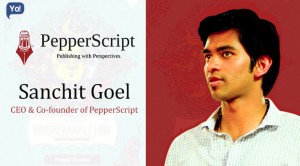
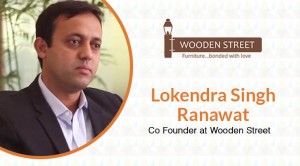
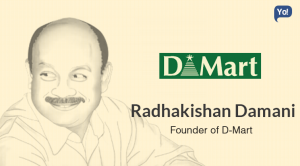
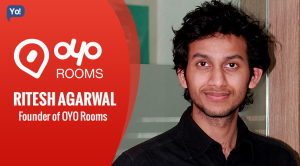


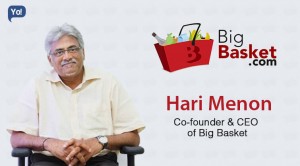
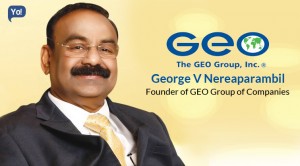

Pingback: Kishore Biyani | Celebrate Your Success Stories...